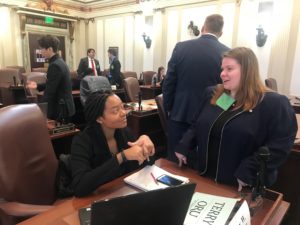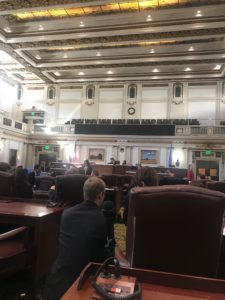Nia Ramsey
Nov. 16, 2018
Puppies and kittens are typically loved among communities across the world, but it could become more difficult for them to be bred. Representative Gourley of the University of Oklahoma presented a bill on November 16th 2018 to the house that would place limitations on pet breeders.
The bill, called the “Animal Welfare Reform” act, could cripple the breeding industry and potentially harm the financial stability of individual breeders. Delegates like representative Martin of OSU fear that the bill could ruin families.
“Dog breeding is some people’s livelihood and it could be the only support for the family.” Martin said.
Another representative, Terry** of ORU, said that the bill itself may not be necessary because similar laws are already in place.
“I’m not sure if it would be entirely effective and I don’t necessarily believe that it is necessary to regulate dog breeders,” Terry said. “There’s already a law in place that keeps it at eleven. I’m not really sure why we would need to go down all the way to a limit cap of 5.”
Another delegate, Rossen** of OSU, agreed with Terry’s sentiments. “If you have a huge house, what’s keeping you from owning 20 dogs as long as you can provide for them?
In the process, many hostile and friendly amendments have hit the floor.Amendments strive to better a piece of legislation. During the process of the current act, confusion entered the floor and members of the body were stirred.
A few zero- and one-star delegates, such as zero-star Sarah Bong from OU, reported difficulties in forming a concrete opinion after the persisting amendments.
“Sometimes, I want to say yes to the bill because I think it could be a good idea,” Bong said. “but, then sometimes a certain amendment pops up and changes the essence of the bill, so it gets a little dicey.”
Some delegates felt that the original intent of the bill was starting to disappear completely in the onslaught of amendments.
“Once they added all animals and took off the limits, so it doesn’t hurt farmers, now it’s a different bill.” Representative Dory** of OSU said. “There’s no point to it anymore.”
What some may call an interesting split on the bill could unfold into something more depending on the nature of the final vote.


